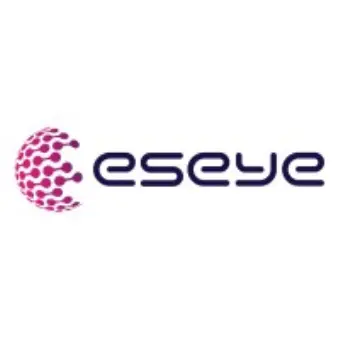Hardware Engineer

Eseye
Company Description
Eseye empowers businesses to embrace IoT without limits. We help them to visualise the impossible and bring those solutions to life through innovative IoT cellular connectivity solutions that enable our customers to drive up business value, deploy differentiated experiences and disrupt their markets.
Our pioneering IoT cellular connectivity solutions, versatile hardware, technical consultancy, and round-the-clock support allows businesses to overcome the complexity of IoT design, development, and deployment. We guide them every step of the way, so they can move forward with IoT projects without the fear of getting it wrong. Supported by our unique AnyNet Secure® SIM technology, Connectivity Management Platform, and a powerful partner ecosystem, we help more than 2,000 customers to seamlessly connect millions of devices across 190 countries, agnostic to over 700 available global networks.
Position
Eseye is looking to recruit an experienced Hardware Engineer to join our busy hardware team. This is a full-time permanent role, reporting to the Director of Things and based in our head office in Guildford, Surrey.
The Hardware team designs and builds wireless connected products for the IoT industry. These products predominantly use cellular radio modules and range from designs that include high performance network processors to low power MCUs.
The Hardware Engineer will oversee the design, development, and testing of hardware platforms and bespoke system components. They will have sole responsibility for the design, supported where necessary by specialist third parties, to deliver high-quality, reliable solutions that customers can then integrate into their chosen device.
This role enables candidates to develop new skills and adapt their current skills to new areas of wireless technology through new product development and evaluation of new technologies. Candidates will be expected to contribute to the overall product development lifecycle, from concept to production including support for regulatory compliance testing.
Key Responsibilities
- Conduct design-related activities including schematic capture, PCB layout, placement reviews and critical layout analysis.
- Perform technical documentation tasks such as creating and reviewing engineering drawings and manufacturing documentation, writing and reviewing design, test, and manufacturing documentation, and maintaining up-to-date records of development and test processes.
- Carry out product verification and validation, including conducting functional and parametric testing of products, developing, implementing, and maintaining manufacturing test processes and documenting test setups/procedures, provide remote troubleshooting support as required.
- Support manufacturing and quality control and review manufacturing quality control reports.
- Provide design consultancy services such as reviewing customer-supplied design data and providing full design documentation.
- Respond to technical queries when required.
Requirements
Essential technical competencies:
- PSU design of DC-DC and linear regulators (typically 10 Watts or less, power over ethernet, good transient load regulation for demanding loads e.g. GSM, low noise for RF applications);
- Interfaces (including low-speed such as RS232 & RS4xx, internal serial busses such as I2C and SPI, NOR and NAND flash, DDR memory systems for embedded applications, Ethernet MII, 10, 100Mbps, GbE, SFP, USB3 and PCI-e);
- Radio technologies e.g. Bluetooth, Zigbee, Wi-Fi frontend design, LNAs, PA's filters, cellular modems;
- PCB Layout (effective PCB power distribution network design and layout, high speed / high frequency PCB layout techniques);
- Previous experience in design for manufacture;
- Proven experience in design verification, use of lab equipment - oscilloscopes, spectrum/network analysers, radio test sets;
- Familiarity with regulatory requirements, safety, RED etcetera.


